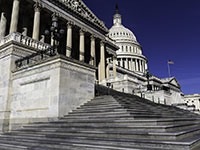On April 14, 2014, a divided panel of the U.S. Court of Appeals for the District of Columbia held in National Assoc. of Mfg., et al. v. SEC that the required disclosures pursuant to the SEC’s Conflict Minerals Rule violated the First Amendment’s prohibition against compelled speech, throwing that rule into uncertainty and possibly opening the door to constitutional challenges to similar disclosure rules.
The Conflict Minerals Rule requires companies and foreign private issuers in the U.S. to disclose their use of “conflict minerals” both to the SEC and on their websites. The Rule, which was adopted pursuant to Section 1502 of the Dodd-Frank Act as a response to the Congo War, defines “conflict minerals” as gold, tantalum, tin, and tungsten from the Democratic Republic of Congo (“DRC”) or an adjoining country, which directly or indirectly financed or benefited armed groups in those countries. The deadline for satisfying the Rule, which became effective in November 2012, is May 31, 2014. The National Association of Manufacturers, along with Business Roundtable and the U.S. Chamber of Commerce, challenged the Rule in the district court and then appealed to the Circuit Court. READ MORE →








